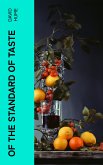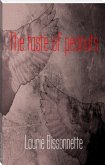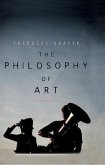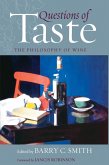In "Of the Standard of Taste," David Hume meticulously examines the nature of aesthetic judgment and the criteria that govern it. Through his informed and engaging prose, Hume posits that despite the subjective nature of taste, there exist certain universal standards grounded in shared human experiences and emotions. By navigating the interstices between personal preference and objective criticism, Hume's treatise stands as a pivotal work in the field of aesthetic philosophy, intertwining Enlightenment thought with an exploration of human nature and perception. David Hume (1711'Äì1776), a preeminent Scottish philosopher and historian, significantly influenced modern philosophy, particularly in the realms of empiricism and skepticism. His personal experiences, combined with the vibrant intellectual milieu of 18th-century Scotland, provided fertile ground for his exploration of taste and judgment. As a key figure in the Scottish Enlightenment, Hume's reflections on art, morality, and the human condition resonate with his inquiries into experience and knowledge, enriching the philosophical discourse of his time. "Of the Standard of Taste" is an essential read for anyone interested in the nuances of aesthetic philosophy and the interplay between subjective experience and universal standards. Hume'Äôs insights continue to provoke thought and dialogue, making this work a foundational text for students, scholars, and art enthusiasts alike.
Dieser Download kann aus rechtlichen Gründen nur mit Rechnungsadresse in A, B, BG, CY, CZ, D, DK, EW, E, FIN, F, GR, H, IRL, I, LT, L, LR, M, NL, PL, P, R, S, SLO, SK ausgeliefert werden.









